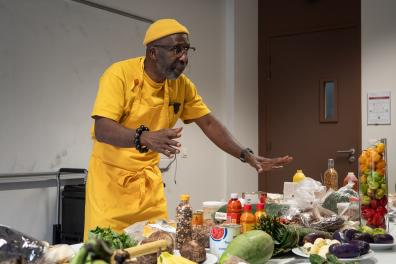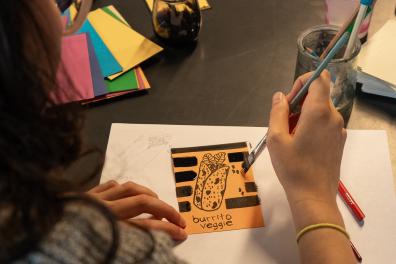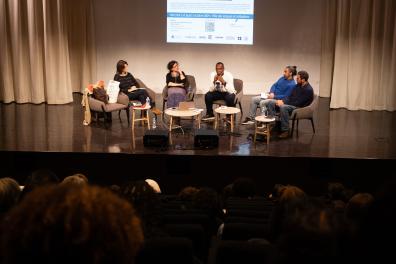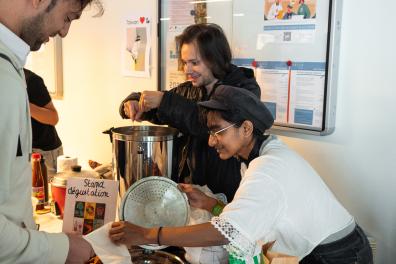Culinary and food practices - A look back at ICHD 2024

"On October 2 and 3, 2024, Inalco honored culinary and food practices during the second edition of its Intangible Cultural Heritage Days (ICHD). A varied audience of nearly 500 people, including Inalco's scientific and student community as well as external visitors, attended a number of round tables, workshops and evening events organized around this theme. Numerous speakers from both the academic world and civil society were invited to discuss different aspects of food and cooking in our human societies, to show just how central they are to the construction of our civilizations and our humanity.
Cooking and food concern us all in our daily lives, but also represent an important part of the construction of our cultures. They not only enable our survival, but also constitute a "total social fact" to use Marcel Mauss's terms, in the sense that they lie at the heart of our social and cultural activities. Consequently, it was important for Inalco to highlight the diversity of civilizations and cultures whose languages are taught at the school through the culinary question.
Speakers whose work concerns Africa, Asia, Europe or Latin America were welcomed to highlight the global and international aspect of this subject. Several themes were chosen to bring together various specialists and researchers - anthropologists, historians, sociologists and ethnologists - with chefs, representatives of committed associations and project managers. Issues addressed included the heritage of culinary and food practices, tradition and historical evolution, human transmission, the relationship between cuisine and health, migration and cultural exchange, and sustainable development and our future consumption patterns.
On this occasion, Inalco was honored to welcome Ana Medina Gonzalez from Unesco, who came to explain the notion of intangible cultural heritage. We were also honored to welcome Aël Théry, anthropologist and co-director of the film Ayi, which was screened on the evening of October 2, followed by a fascinating interaction with the speakers and the audience. The closing evening of October 3 ended with a captivating and dynamic discussion between poet Ryoko Sekiguchi and chef Karim Haïdar, moderated by Emil Pacha Valencia, editor-in-chief of Tempura magazine. These various events were not only fascinating, but also took up all the points raised over the two days in the various round tables.
In parallel, several workshops were offered to also talk about the material - and not just the immaterial - aspect of cooking and food. Marina Menini introduced us to the craft of knife sharpening, reminding us of the importance of culinary equipment in our preparations, and chef Alexandre Bella Ola organized a workshop on spices in African cuisine. Morgane Guerry also organized a culinary drawing workshop, which was well attended. Our students and several of our teachers also got involved to help us discover a number of culinary specialities from different regions of the world, alongside stands run by several of our partners.
These two days of Inalco's IBOs were rich and dynamic, thanks to both the speakers and the audience. They were an opportunity to remind us that food and cooking are scientific subjects essential to understanding our human societies, but above all that they are living disciplines, with long and complex histories, and above all in constant evolution. To speak of food and cooking is also to speak of humanity, of its tangible and intangible heritage in the past, present and future."
Alexis Markovitch, scientific curator of the second edition of Inalco's JPCI.
Doctorate in Japanese studies, historian of culinary and food practices in Japan.



Find below the event's opening speech by Rima Sleiman, Vice-President of Research at Inalco, and the rebroadcast of the closing evening, a discussion between Ryoko Sekiguchi and Karim Haïdar.
Discours d'ouverture - JPCI 2024 (102.61 KB, .pdf)